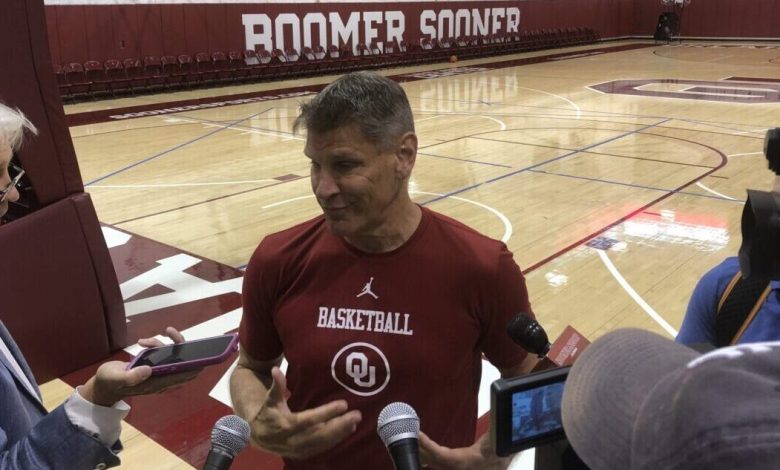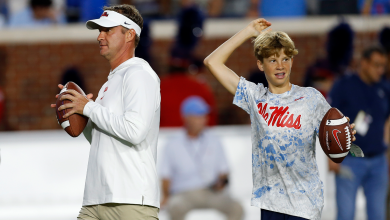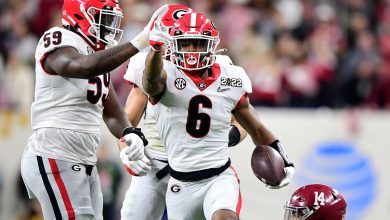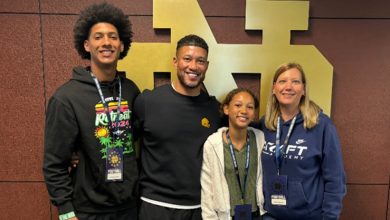Porter Moser seemed like the perfect hire for OU basketball. Time to try again. | Mussatto

When the University of Oklahoma hired Porter Moser as the head coach of its men’s basketball team in 2021, the decision was met with optimism. Oklahoma, a program with a rich history in basketball but inconsistent recent performances, needed a new direction. Moser was seen as the perfect fit for a program in transition: a seasoned coach who had successfully turned around a mid-major program, leading Loyola-Chicago to the Final Four in 2018. His reputation as a defensive-minded coach with the ability to develop players made him a compelling choice to bring Oklahoma basketball back to national prominence.
However, after two seasons in Norman, it’s clear that Moser’s tenure hasn’t gone according to plan. Oklahoma has yet to make a significant leap forward under Moser, and the program’s future remains uncertain. The Sooners have underperformed relative to expectations, failing to consistently compete in a hyper-competitive Big 12 conference. With Oklahoma’s basketball program at a crossroads, it’s time to reassess the direction under Moser’s leadership and consider whether the Sooners need to try again.
The Expectations and Early Promise
When Moser was hired, it was easy to see why the move made sense for Oklahoma. The Sooners had struggled in recent years under former head coach Lon Kruger, who had retired after a lengthy and successful career. Kruger, though beloved in Norman, was starting to show signs of age and declining results, and the program seemed in need of a fresh approach. Moser, on the other hand, had built Loyola-Chicago into a perennial mid-major powerhouse, making multiple NCAA tournament appearances and securing a memorable run to the Final Four in 2018. His teams were tough, defensive-minded, and disciplined, traits that seemed to align perfectly with what Oklahoma needed.
Moser’s ability to recruit talented players who could fit into his defensive system was evident during his time at Loyola. He was known for identifying overlooked recruits and developing them into solid contributors. This fit with Oklahoma’s needs, as the Sooners had a strong recruiting base but had struggled to put together consistent rosters capable of competing with the best in the Big 12.
In his first year at Oklahoma (2021-2022), Moser inherited a roster that had some talent but lacked the cohesion needed to compete at a high level in a loaded conference. Despite the obstacles, Moser’s Sooners were competitive, finishing the season with a 19-16 record and earning a spot in the NIT. They showed flashes of promise, but the team was inconsistent throughout the season. While Moser’s trademark defense was evident, the offensive production didn’t reach the level necessary for success in the Big 12. The Sooners lacked a go-to scorer and struggled to win close games against high-level competition.
The following season, expectations were higher, as Moser had brought in some of his own recruits and had more time to implement his system. However, the results were once again disappointing. Oklahoma finished the 2022-2023 season with a 15-17 record, missing out on both the NCAA Tournament and the NIT. The Sooners again struggled with consistency, particularly on the offensive end. While Moser’s defensive philosophy was still present, the team had no clear identity offensively, and it became evident that the program wasn’t progressing in the way many had hoped.
The Problems with Moser’s System at Oklahoma
Porter Moser’s coaching philosophy is centered around defense and team-oriented basketball, principles that worked well at Loyola-Chicago, where talent disparities were often more pronounced. However, translating that success to a high-major program like Oklahoma has proven to be a challenge.
- Defensive Strategy vs. Offensive Production
Moser is known for creating hard-nosed, defensive-minded teams. At Loyola, his teams were elite on defense, often ranked among the best in the country in terms of efficiency. This success was predicated on his ability to develop players defensively, build a cohesive unit, and generate turnovers. However, at Oklahoma, the Sooners’ offense has lagged behind.
In the Big 12, a league that boasts some of the best offenses in the country, relying solely on defense can be a dangerous game. Oklahoma’s offensive struggles have been well-documented during Moser’s tenure. The Sooners have lacked an elite scorer capable of carrying the team in big moments, and their offensive system has often appeared stagnant. While Moser’s defensive schemes have been solid, they have not been enough to overcome the scoring deficiencies. In the high-scoring Big 12, teams need offensive firepower to complement strong defense, and Oklahoma has simply failed to provide that.
- Inability to Attract Top Talent
Another key issue for Moser at Oklahoma has been his difficulty in attracting and developing top-tier talent. While he had success recruiting at Loyola-Chicago, Oklahoma is in a different situation. The Sooners are competing in a Power 5 conference with much higher expectations. Recruiting at a high level is imperative for success in the Big 12, and Oklahoma has struggled to land the kind of elite talent needed to elevate the program.
Moser has been able to recruit some solid players, but the Sooners have not been able to secure top-tier prospects in the way other Big 12 schools have. As a result, Oklahoma has been forced to rely on developing players with lesser reputations, and while Moser’s developmental skills are solid, it is difficult to compete with the likes of Kansas, Texas, and Baylor when those programs are landing top recruits year after year.
- Lack of Identity and Leadership
One of the biggest challenges for Moser at Oklahoma has been creating a clear identity for the program. During his first two years, the Sooners have lacked a consistent and recognizable style of play. While Moser’s teams at Loyola were known for their defensive discipline, Oklahoma’s teams have often appeared disjointed, with offensive inefficiencies and struggles to create a clear identity. There’s been no player who has emerged as the clear leader of the team, and the program’s direction under Moser has appeared uncertain.
Moreover, leadership on the floor has been an issue. In contrast to teams like Kansas, where veteran players lead by example, Oklahoma has often found itself without a go-to player who can take charge when the game is on the line. While Moser has worked to develop players, the lack of standout leadership has been a noticeable issue.
The Need for a Change
After two years under Porter Moser, it’s clear that Oklahoma’s basketball program has not taken the necessary steps forward. While there are signs of promise in individual players and the potential to build a more competitive team in the future, the reality is that the Sooners are far from a national contender and are not positioned to make a serious push for the NCAA Tournament anytime soon.
As Oklahoma looks to the future, it’s time to consider a change. Moser’s system simply hasn’t translated to success in the Big 12, and the team has struggled to consistently compete with the elite programs in the conference. While Moser’s leadership and experience are undeniable, his ability to adapt to the demands of high-major college basketball is in question. The lack of offensive firepower, the inability to land top talent, and the failure to establish a clear program identity have all contributed to a sense of stagnation under his leadership.
For Oklahoma to move forward, it may be time to look for a coach who can recruit at a high level, build a more dynamic offense, and provide the leadership needed to take the program to the next level. Oklahoma has a strong basketball tradition, a solid fanbase, and a state rich in basketball talent, but those resources are not being fully utilized under Moser’s direction.
The Future of Oklahoma Basketball
While Porter Moser may have seemed like the perfect hire for Oklahoma basketball in 2021, the results of the past two seasons suggest that a change is necessary. Moser’s defensive prowess and coaching acumen are unquestioned, but the challenges of building a top-tier program in the Big 12 require more than just defensive discipline. The Sooners need a coach who can recruit at a high level, develop an elite offensive system, and build a clear, identifiable program culture.
It’s time for Oklahoma to try again—this time with a coach who can put the program back on track and make it a legitimate contender in one of the toughest conferences in the country. While Moser may not have been the right fit, Oklahoma’s basketball future remains bright, and the search for a new leader could be the key to unlocking that potential. The next hire will need to be someone who can balance defense with offense, recruit elite talent, and, above all, develop a winning culture in Norman once again.









